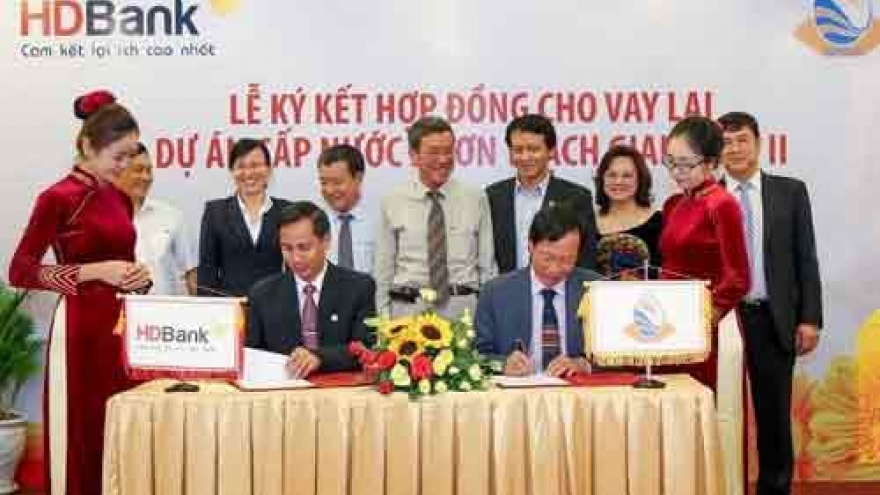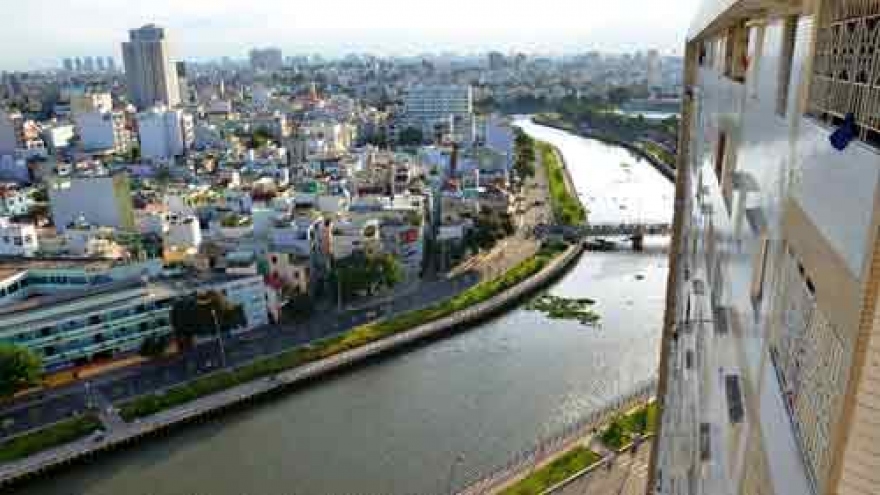Japanese ODA having an impact
Yasuo Fujita, Chief Representative of the Japan International Cooperation Agency (JICA) in Vietnam, tells VET Online that Japanese ODA has been implemented successfully and effectively in the country.
 |
Japanese ODA has contributed to strengthening financial management activities and stabilizing economic development in Vietnam.
This can be seen through the stable provision of ODA loans over recent years, the contribution of Japanese ODA to Vietnam’s debt management, and advanced technologies and benefits Japanese ODA has brought to Vietnamese enterprises.
In technical cooperation, Japanese ODA activities implemented through JICA have focused on the delivery of knowledge, experience and human resources training.
Technical cooperation projects have been highly efficient and provided practical and sustainable benefits to Vietnam’s economy and society.
Every year JICA requires consulting firms perform an evaluation of ODA projects implemented in recipient countries.
Projects assessed as “highly satisfactory” or “satisfactory” have met the criteria in compatibility, efficiency, and sustainability.
The latest evaluation report from JICA shows that the number of projects in Vietnam evaluated during 2013-2015 as being “highly satisfactory” and “satisfactory” accounted for more than 60 per cent, which is much higher than in other recipient countries.
Based on these results I believe Japanese ODA has been implemented successfully and effectively in Vietnam.
What will be the challenges for JICA in implementing ODA in Vietnam in the years to come and how will these be overcome?
Vietnam has high growth potential among developing countries in the world. Despite the macro-economic achievements, however, I still see many structural issues that need to be tackled.
Vietnam would be able to do better if policies were applied appropriately.
To realize its growth potential there are still many things to do, such as the reform of laws, judiciary and administration, infrastructure and human resources development.
In recent years the Vietnamese Government has undertaken some reforms and achieved success in many areas.
Given that the easier reforms have been done already, future reform is likely to face many difficulties.
One of the key issues for Vietnam is economic development, leading with the private sector. It is also necessary to improve the investment environment, State-owned enterprise (SOE) reform, and human resources development, to increase public investment efficiency, and enhance the application of technology in agricultural development.
In order to promote efficiency in the use of Japanese ODA, the government and JICA should accelerate related processes and activities.
I look forward to Vietnamese agencies overcoming delays in decision making and project implementation.
I also look forward to corruption not being repeated in projects using Japanese ODA in the future.
In preventing corruption, in addition to posting information on its website to track the implementation of Japanese ODA projects in Vietnam, JICA uses other tools such as third-party assessment and mid-term project reviews.
We encourage everyone to share any doubts about projects using Japanese ODA in Vietnam.
What is the most interesting thing for you in taking up the position of Chief Representative of JICA in Vietnam?
I’m very excited to take on the position of JICA Representative in Vietnam and regard this responsibility as an important task with many challenges.
Firstly, Vietnam is a developing country with strong growth potential. I mentioned above that addressing structural obstacles is essential but not easy to do.
I would be honored, however, to contribute my efforts to resolving these difficulties as an economist and also as an executive.
Secondly, many Vietnamese people and leaders are happy to contribute to the country’s development as well as improving the prosperity of citizens.
Vietnam is a priority country for Japan in allocating ODA. A large amount of resources from Japan have therefore been deployed in Vietnam via JICA projects and many people and organizations from Japan are interested in investment and development in Vietnam.
Many people and leaders in Vietnam, meanwhile, are also interested in tapping into Japan’s experience, knowledge and technology.



